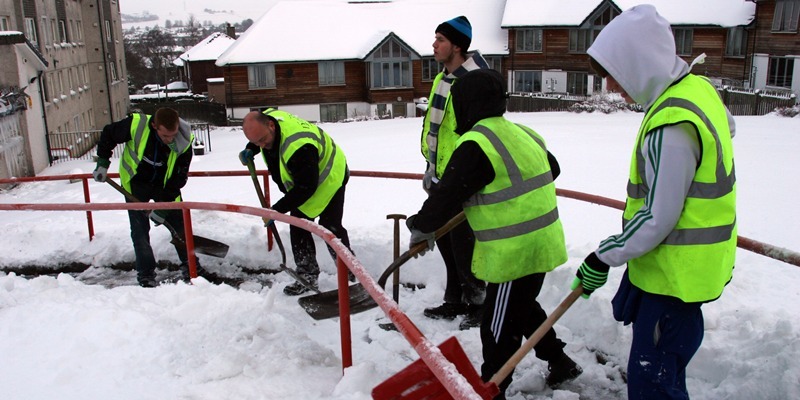Communities and victims across Scotland are to be given a say on the type of work they want to see low-level offenders carrying out in their area.
Under plans that came into force yesterday, communities will be able in consultation with their local authority to nominate local priorities and then ask for offenders to start work on them as part of their community sentence.
The work could be cleaning up graffiti, clearing litter, renovating elderly care homes or restoring fallen gravestones.
Tayside Community Justice Authority (CJA) is in discussion with its three councils Angus, Dundee and Perth and Kinross into how the consultation with communities will operate.
As part of the Criminal Justice and Licensing (Scotland) Act 2010, there will now be a presumption against what have been labelled ineffective short prison sentences of three months or less in favour of a new Community Payback Order.
Judges will still be able to sentence someone to three months in jail if they wish, but there will be a general presumption low-level offenders will instead be sent to carry out manual labour.
These disposals will be backed by action to address any underlying problems that may be fuelling the crime whether that be alcohol, drug or mental health problems.Snow clearingFigures show 33,707 hours of snow clearing were undertaken by low-level offenders in Scotland during the recent adverse weather. On average there were 1314 offenders on community service every week across Scotland helping pay back to their communities by clearing snow.
The proposals are intended to improve public input into deciding the type of manual labour they want to see low-level offenders doing.
Justice secretary Kenny MacAskill said the idea is that low-level offenders should work for the benefit of the community and work squads should help those organisations and projects that are a priority.
The announcement is backed by additional funding to be allocated to Community Justice Authorities across Scotland to help deliver community payback and to improve its speed and effectiveness on the ground.
The majority of the funding will be used for specific projects to enhance facilities communities suggest should be improved, but which might not otherwise have been able to go ahead.
The rest of the funding is to be allocated to the purchase of specialist equipment, such as graffiti removal tools, or larger capital equipment to be used in more innovative work activities.
Tayside CJA convener Helen Wright said, “Low-level offenders will be paying back communities by doing work to benefit the communities they have harmed. We will use these offenders as a resource to make improvements to local communities as payback for the damage they have done.
“Communities and victims will now have a greater say on the type of manual labour they want to see low-level offenders carrying out. This will mean communities across Tayside can identify local work which needs to be undertaken and have offenders out doing them for the benefit of the community.Graffiti”It may be that streets scrawled in graffiti, or pavements covered in chewing gum, are targeted by local residents for action and community service work squads sent in to clean them up, or it may be that there is a need for marker posts along a coastal path to protect walkers, as was undertaken in Arbroath.
“Now Tayside’s communities will be given the chance to choose, and there will be a statutory obligation for local authorities to consult the community on the type of work that low-level offenders should be carrying out in the area as part of their punishment.”
Mr MacAskill said, “We want justice to be both immediate and tough. That is why the new community payback order will also contain provisions which will force low-level offenders given unpaid work to complete their sentenced hours much faster than they have had to previously, meaning they have to work much harder as a result.
“Prison is and always will be the right place for serious and dangerous offenders and recent statistics show we are beginning to get that balance right.
“Crime is down, serious crime is down, fear of crime is down, the number of people carrying out crime is down, and those that do break the law are being punished swiftly by Scotland’s justice system with criminals now being punished with the longest prison sentences in a decade.
“But at the other end of the scale, we need to address Scotland’s appalling reoffending rate for low-level offenders. These offenders are going in and out of prison time and time again and committing more crime in communities upon release.”
He added, “The facts speak for themselves, with three-quarters of those sentenced to a short prison sentence of three months or less going on to reoffend within two years of getting out but in direct comparison, three out of five given a tough community sentence do not.”
Victim Support Scotland chief executive David McKenna said, “The opportunity now exists for offenders to visibly make a positive difference to communities throughout Scotland through Payback.
“It is really important that the views of victims of crime and communities are taken account of in the use of payback, and that this should include the nature of work to be undertaken and the demonstrable difference it makes to the relevant community.
“For many offenders, short-term jail sentences simply do not work and are costly. Payback can make a real difference to the quality of life in a community and reduce the potential for reoffending.”
